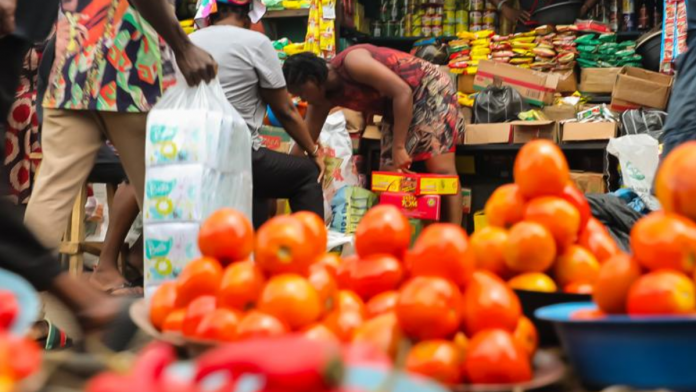News in Brief:
– A recent report by Nigeria’s statistics office revealed significant food price increases in February 2024.
– Staples like rice, beans, and yams saw year-on-year price hikes exceeding 100%, potentially straining Nigerian consumers.
The National Bureau of Statistics (NBS) recently released its Selected Food Price Watch for February 2024, revealing a substantial increase in staple food prices across Nigeria.
This report highlighted a year-on-year (YoY) surge in the price of local rice, with the average cost reaching ₦1,222.97 per kg in February 2024. This represents a staggering 134.81% increase compared to ₦520.84 recorded in February 2023. There was also a significant month-on-month (MoM) rise of 19.69% compared to January 2024’s price of ₦1,021.79.
Additionally, the cost of other essential food items witnessed significant growth. Beef (boneless, 1kg) saw a YoY increase of 49.41%, rising from ₦2,445.96 in February 2023 to ₦3,654.56 in February 2024. The MoM increase for beef was 10.22% compared to January 2024.
Also, prices for brown beans followed a similar trend, with a YoY increase of 98.25% from ₦594.15 in February 2023 to ₦1,177.93 in February 2024. MoM growth for beans was 20.62% compared to January 2024.
The cost of white garri displayed a YoY increase of 109.16%, rising from ₦345.88 in February 2023 to ₦723.45 in February 2024. The MoM increase for garri was 20.44% compared to January 2024.
Furthermore, Yam tubers weighing 1kg experienced a price surge, with a YoY increase of 131.33% from ₦436.41 in February 2023 to ₦1,009.56 in February 2024. MoM growth for yams was 11.93% compared to January 2024.
Challenges expected from the latest NBS figures
Overall, these substantial price hikes across essential food items highlight potential challenges for Nigerian consumers. These include:
- Affordability Issues: The significant rise in staple food prices (rice, beans, yam, etc.) exceeding 100% year-on-year will likely strain household budgets. Nigerians may struggle to afford the same amount of food as before, potentially leading to reduced food intake or a shift towards cheaper, less nutritious options.
- Dietary Changes: Difficulty affording staple foods could lead Nigerians to alter their diets, potentially consuming less protein and essential vitamins from sources like beans and meat. This dietary shift could have negative health consequences in the long run.
- Increased Poverty: Rising food prices can exacerbate existing poverty in Nigeria. With a larger portion of income dedicated to food purchases, Nigerians may have less money available for other necessities like healthcare or education.
- Social Unrest: Food insecurity and rising food prices can contribute to social unrest, as there’s a potential for social tension and even protests.



